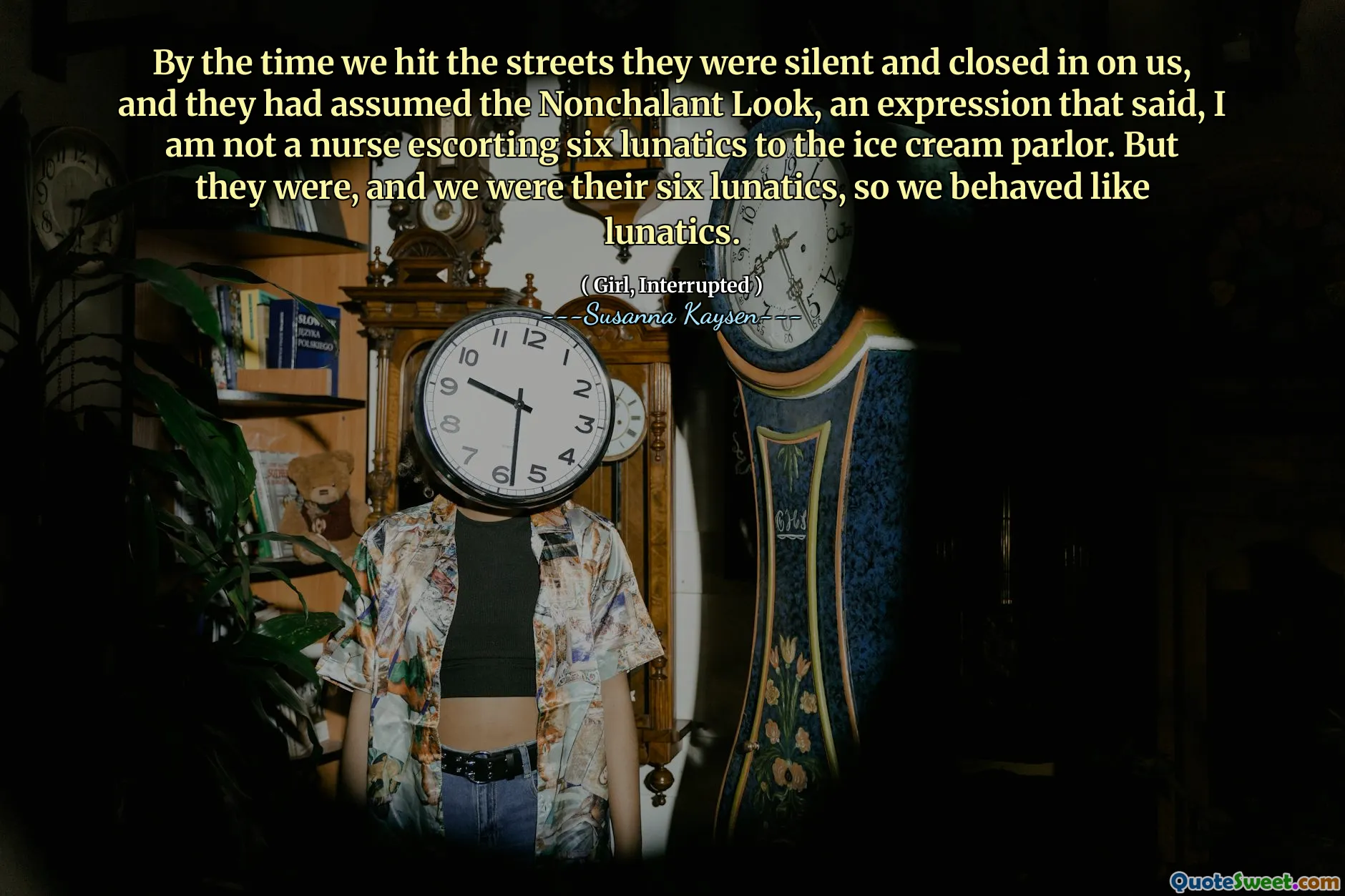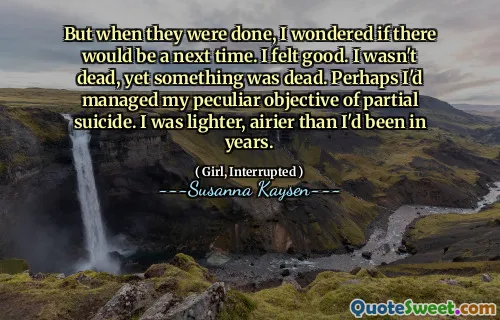
By the time we hit the streets they were silent and closed in on us, and they had assumed the Nonchalant Look, an expression that said, I am not a nurse escorting six lunatics to the ice cream parlor. But they were, and we were their six lunatics, so we behaved like lunatics.
This passage vividly captures a moment where the caregivers’ attempt to maintain composure and authority contrasts sharply with the raw, emotional reality of the patients they are escorting. The 'Nonchalant Look' adopted by the nurses is a protective facade— a way of distancing themselves from the stigma that society attaches to mental illness and the patients they serve. This expression is not just about appearing indifferent; it is about reclaiming dignity in an environment often riddled with misunderstanding and prejudice.
The description of the patients as 'six lunatics' is both a self-aware and poignant reminder of how mental illness frames identity within institutional settings. There is a certain dark humor in the acceptance of this label, reflecting the coping mechanisms the patients use to navigate through their experiences. By stating 'so we behaved like lunatics,' the quote subtly hints at the performative aspects of categorization by both patients and caregivers— a cycle where labels lead to expected behaviors, which in turn reinforce those very labels.
This excerpt from Susanna Kaysen's "Girl, Interrupted" theoremizes the complex interplay between identity, societal perceptions, and authority within mental health narratives. It underscores the challenges of humanizing individuals who are often reduced to mere diagnoses, highlighting the thin line between caretaker and patient, control and chaos, normalcy and insanity. The narrative gently invites readers to reconsider their assumptions about mental illness and the people who live with it.










